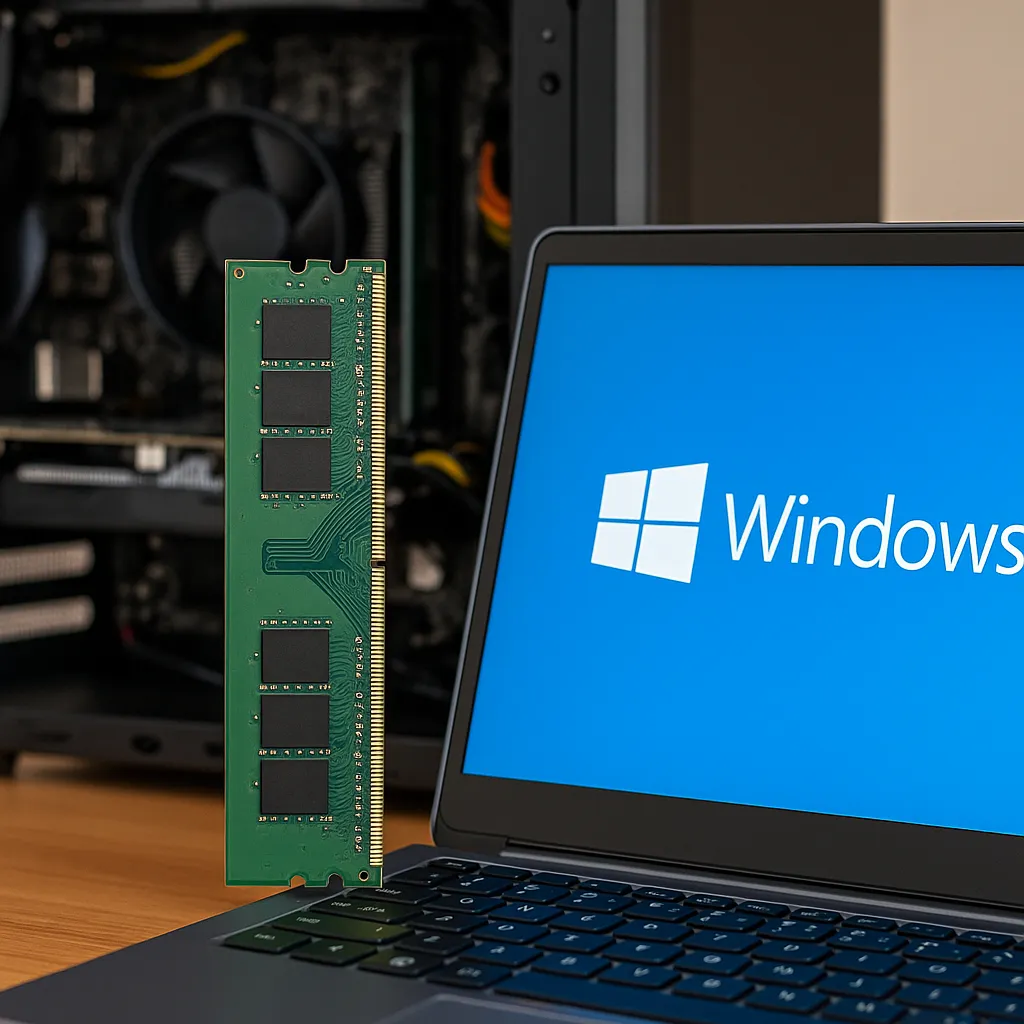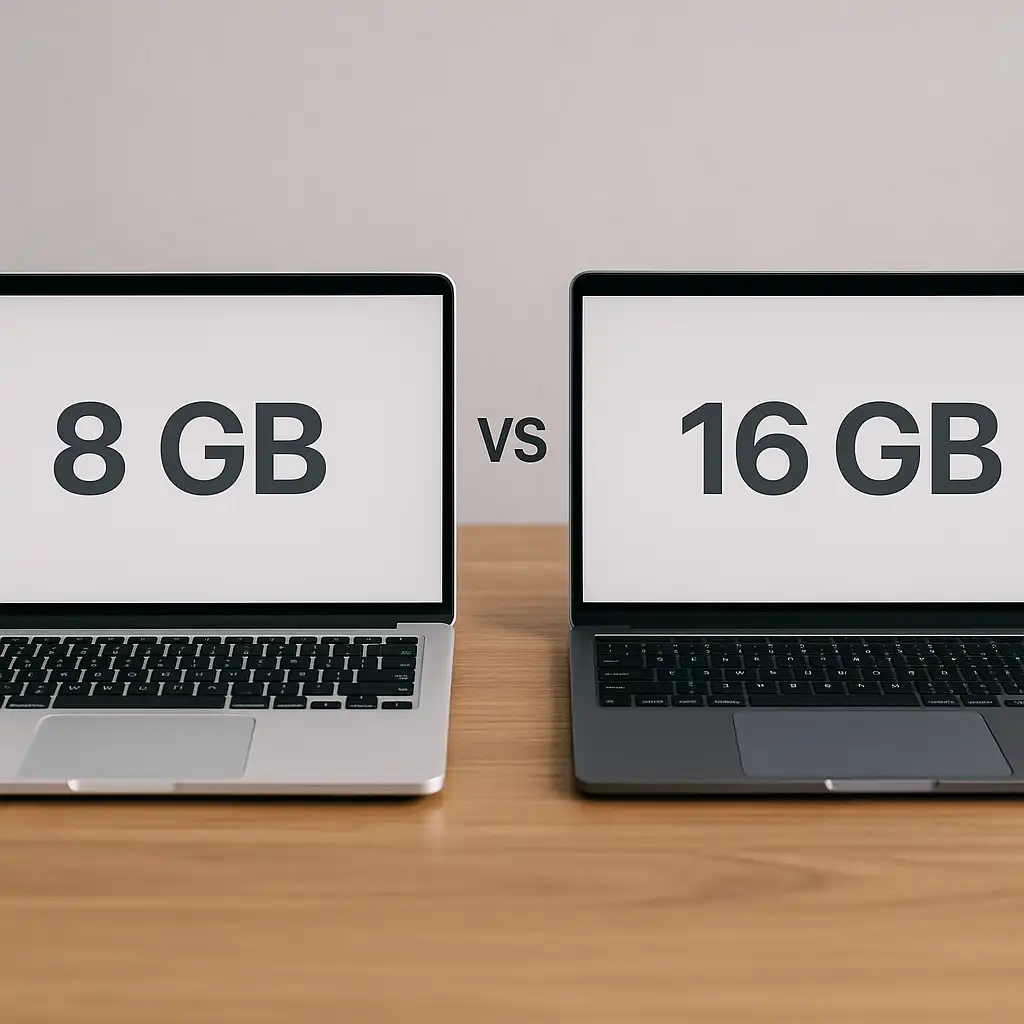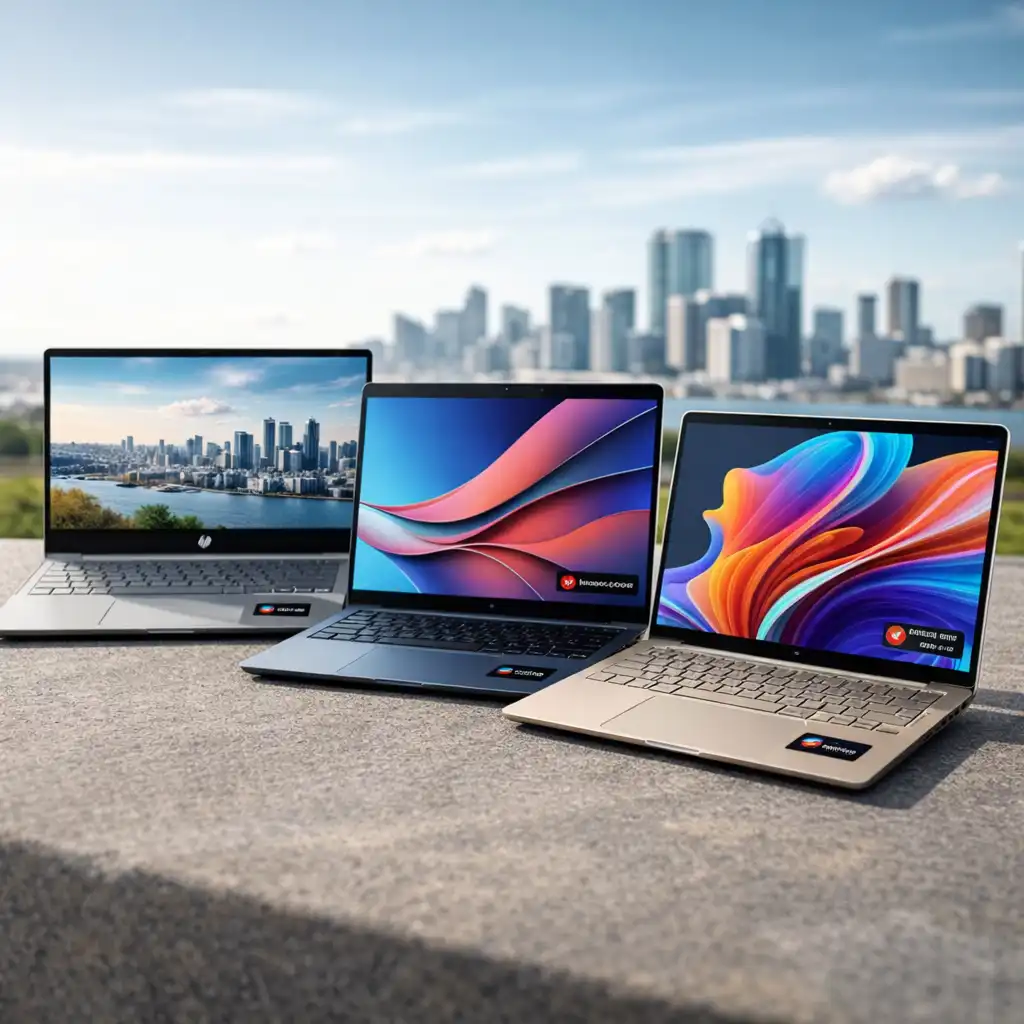Best Laptop Processor – Performance & Real-World Picks
Disclosure: This post contains affiliate links. LaptopVoyager.com participates in the Amazon Associates Program and may earn commissions on qualifying purchases, at no extra cost to you.
Last Updated: August 26, 2025
Your laptop’s processor is what makes everything feel fast—or painfully slow. It affects speed, battery life, and how well you can multitask. Pick too weak a chip and you’ll hit slowdowns sooner than you’d like. Go too big, and you may spend money on power you’ll never use.
If you’re comparing options, the best computer processor for a laptop depends on what you do day to day. For the classic showdown, our guide to Intel vs AMD laptops explains how the two stack up. But the market isn’t just about Intel and AMD anymore. Apple Silicon and Qualcomm Snapdragon are changing what laptops can do, especially for users who want long-lasting batteries and lighter machines.
Best Laptop Processor Right Now
In 2025, the main contenders are:
- Intel Core i7/i9 – Reliable picks for gaming and all-around power.
- AMD Ryzen 7/9 – Strong multitasking at fair prices. Many see these as the best AMD processor for laptop buyers who want balanced performance.
- Apple Silicon M3 – Efficient, powerful, and known for excellent battery life.
- Qualcomm Snapdragon X Elite – ARM-based, built for slim, fanless laptops with all-day portability.
Each option makes sense for a different type of user—students who want a dependable study machine, creators who need speed, or travelers who value battery life most.
🔹 Laptop Processor Comparison – 2025 (Card Layout)
Intel Core i7 / i9
💪 Strengths: High performance, great for gaming, strong app compatibility
🎯 Best For: Gamers, power users, all-around laptops
⚠️ Weaknesses: Runs hotter, shorter battery life
💻 Example Laptops: Dell XPS, ASUS ROG, HP Spectre
AMD Ryzen 7 / 9
💪 Strengths: Excellent multitasking, good value, strong integrated graphics
🎯 Best For: Multitaskers, professionals on a budget
⚠️ Weaknesses: Battery life not as strong as Apple/Snapdragon
💻 Example Laptops: Lenovo Legion, HP Omen, ASUS TUF
Apple Silicon M3
💪 Strengths: Superb efficiency, long battery life, optimized macOS apps
🎯 Best For: Students, creators, professionals
⚠️ Weaknesses: macOS only, limited upgrade options
💻 Example Laptops: MacBook Air, MacBook Pro
Snapdragon X Elite
💪 Strengths: Fanless, thin & light, always-connected 5G/ARM
🎯 Best For: Travelers, mobile-first workers
⚠️ Weaknesses: Limited Windows app support, newer ecosystem
💻 Example Laptops: Microsoft Surface Laptop, Lenovo Yoga Snapdragon
Laptop Processors Comparison – Intel, AMD, Apple & Snapdragon
Intel and AMD still dominate laptop shelves, but they’re not alone anymore.
Snapdragon’s ARM processors bring long battery life and cool, fanless designs. Wondering how they compare? Check our breakdown of whether Snapdragon beats Intel.
pple also shook things up with its own chips. Instead of relying on Intel, it built Apple Silicon. Check our Mac vs Windows laptops guide to see how these processors stack up in real use.
For an even bigger view across manufacturers, see the laptop brand comparison guide – ASUS, Dell & more.
Cores, Threads & Efficiency – What Actually Matters
Cores and threads aren’t just specs on paper—they decide how smoothly your laptop handles heavy loads. More cores mean better multitasking, whether you’re running design software or several apps at once.
If you’re stuck between Intel’s i5 and i7, the i5 vs i7 laptops guide lays it out clearly. For many buyers, the best laptop processor i7 models strike the right balance of performance and cost.
It’s also common to see comparisons like our 6-core vs 8-core laptop breakdown. For everyday users, the difference may feel minor, but gamers and creators usually notice the extra headroom.
Performance vs Battery Life
Not all processors are designed with the same goals. Intel and AMD often push raw performance, while Apple Silicon and Snapdragon lean toward efficiency. To see how these differences play out in real-world use, here are a few direct comparisons:
- If you’re looking at our Intel vs Snapdragon laptop guide, the trade-off is clear: Intel leads in compatibility, while Snapdragon shines in mobility.
- The Snapdragon vs AMD laptop breakdown shows how AMD handles multitasking, while Snapdragon stretches your battery further.
- Apple’s M-series processors combine speed and efficiency, as explained in our Apple Silicon vs Intel guide.
- For a closer ARM-only face-off, check our Apple Silicon vs Snapdragon comparison.
Best Processors by Use Case
The right laptop processor really comes down to how you plan to use your machine day to day:
- Students and casual users: With 8GB of RAM and a basic processor, most casual users are covered for browsing, streaming, and schoolwork. See our guide on how much RAM I need on a laptop for tips on balancing memory with CPU power.
- General multitasking: If you’re juggling dozens of browser tabs or light creative tools, check our 8GB vs 16GB RAM laptops guide to see how extra memory pairs with your processor.
- Work and business: For heavy spreadsheets, coding, or demanding software, our 16GB vs 32GB RAM laptops guide explains when stepping up to more memory and stronger processors is worth it.
- Gaming and pros: Gamers and creative professionals usually benefit from more cores and faster chips. Take a look at our best laptops for multitasking and heavy workloads guide to see why extra power matters here.
Price & Value Considerations
High-end processors like Apple’s M3 Max or Intel’s Core i9 are incredibly powerful, but most users don’t actually need that level of performance. For everyday tasks or light creative work, mid-range options often provide far better value without overspending.
If you’re unsure about upgrading, our Intel Core Ultra vs AMD Ryzen 7000 guide breaks down how premium processors stack up—and whether paying extra is really worth it.
FAQs
Q: What is the fastest laptop processor in 2025?
A: Apple’s M3 Max and Intel’s Core i9 are among the top performers. Snapdragon X Elite is leading in ARM laptops.
Q: Is an i7 laptop processor still good enough for students?
A: Absolutely. i7 laptops handle multitasking easily, though many students find an i5 or Ryzen 5 is more affordable.
Q: Which is better for battery life, Apple Silicon or Intel?
A: Apple Silicon and Snapdragon generally last longer per charge compared to most Intel laptops.
Q: Are Snapdragon processors good for Windows laptops?
A: Yes. They’re perfect for thin, always-connected devices, though some apps still run better on Intel or AMD.
Conclusion
The best laptop processor depends on your needs. Students and light users can stick with Intel i3 or Ryzen 3. Business users and creators often prefer i7, Ryzen 7, or Apple’s M-series. Snapdragon is quickly gaining fans among people who want portable laptops with outstanding battery life. Choosing the right processor now ensures smoother performance and better value over time.







